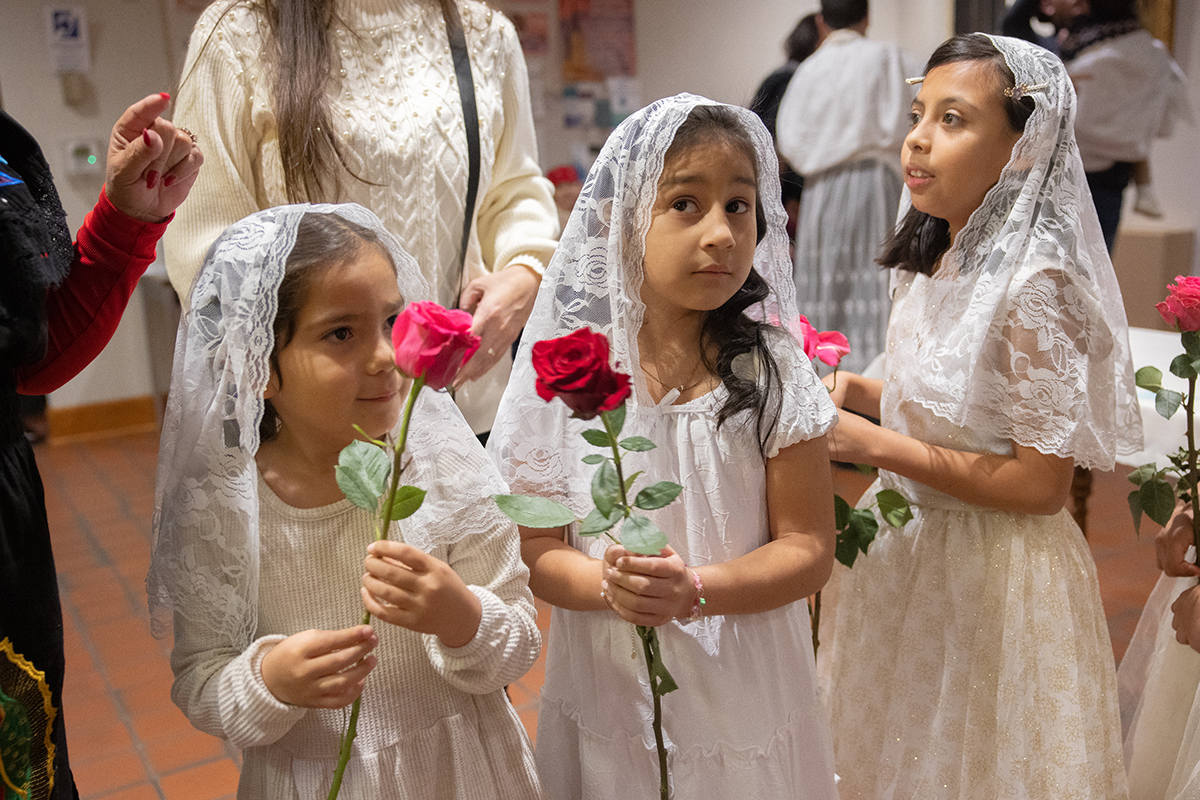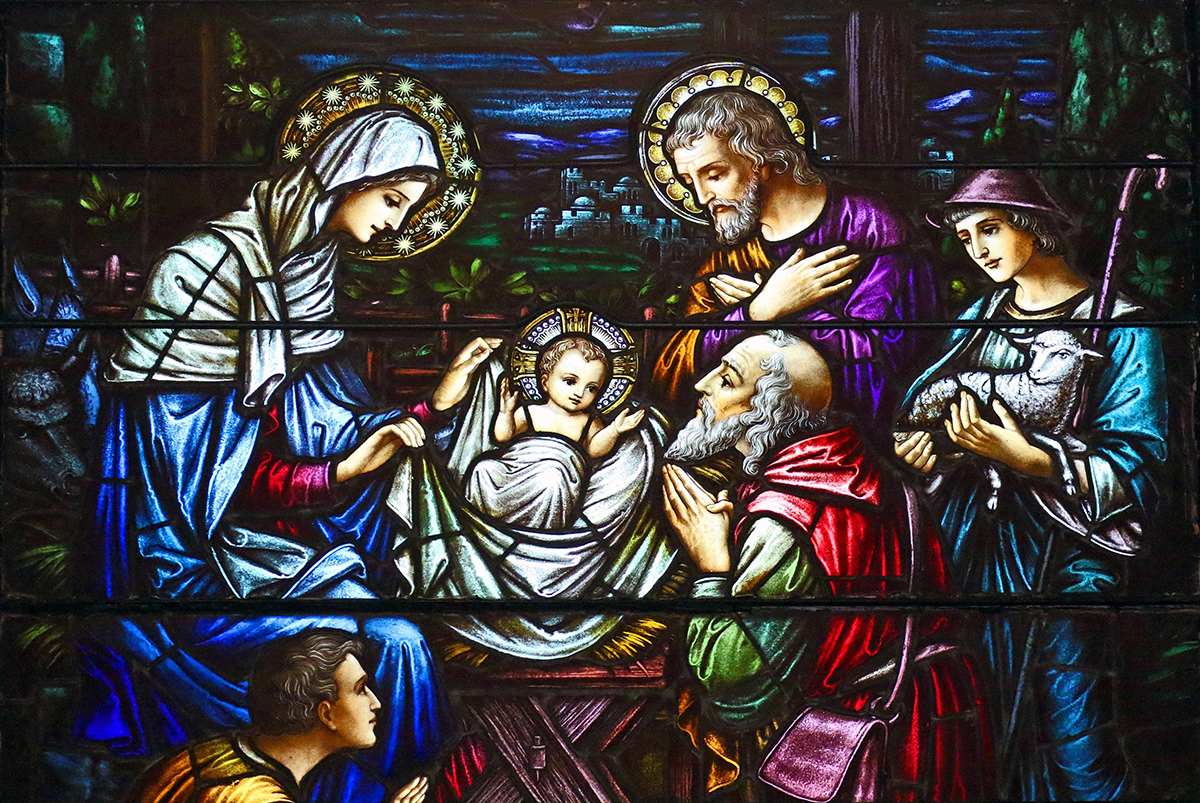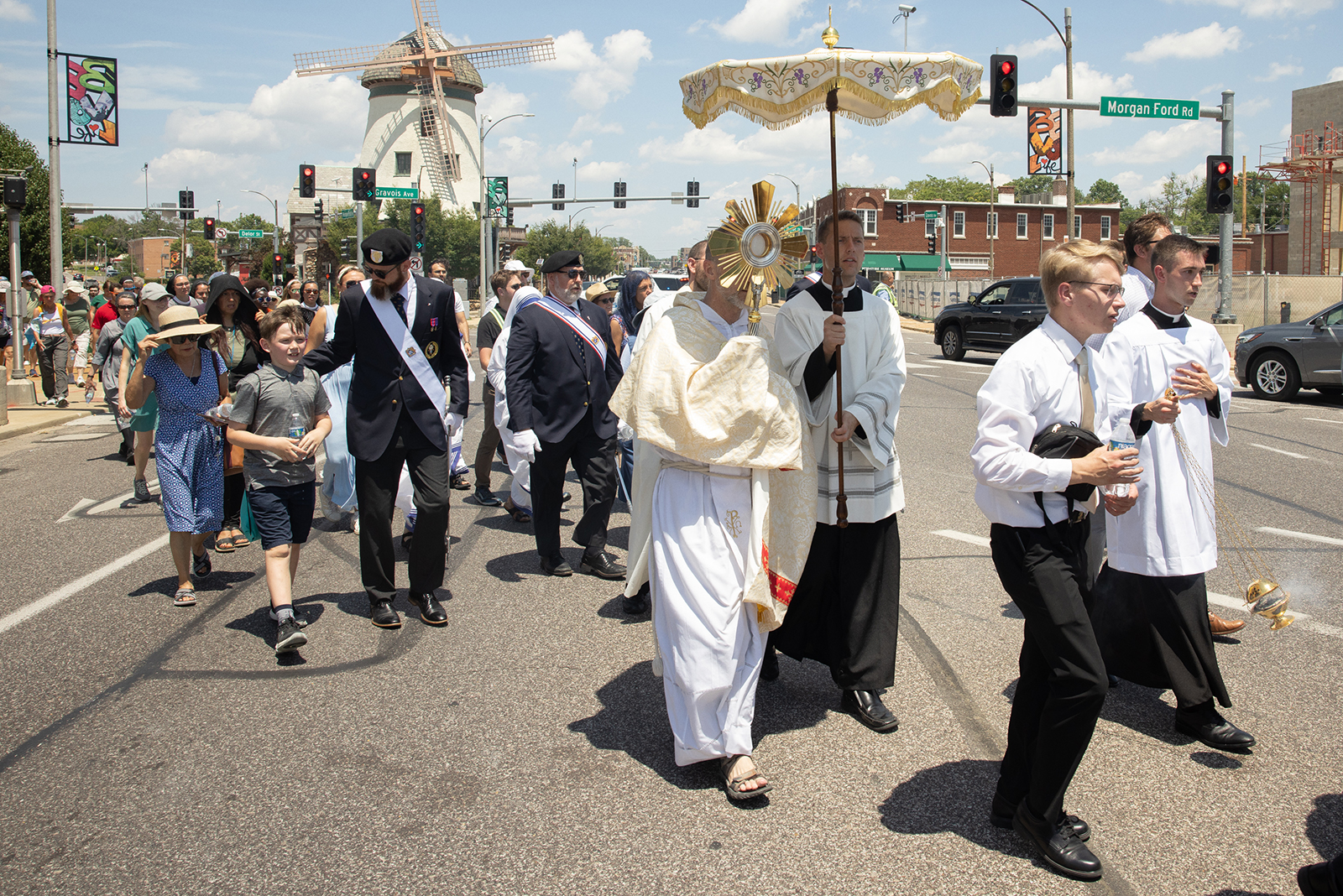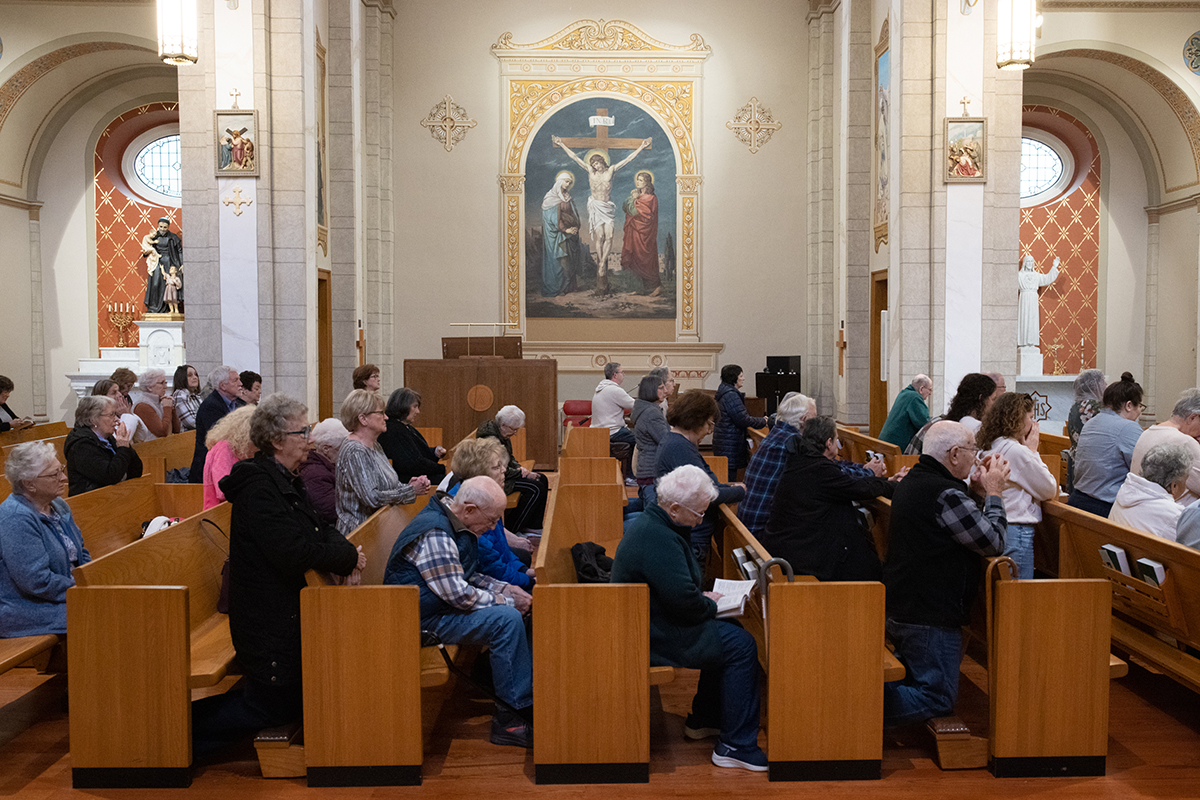Archbishop Carlson was a frequent, vigorous supporter of immigration reform

Archbishop urged secure borders, humane treatment of immigrants, refugees
Archbishop Robert J. Carlson has been a frequent and vigorous supporter of immigration reform efforts and for the humane treatment of immigrants and refugees.
Archbishop Carlson used his column in the St. Louis Review and spoke out in statements and press conferences on the matter.
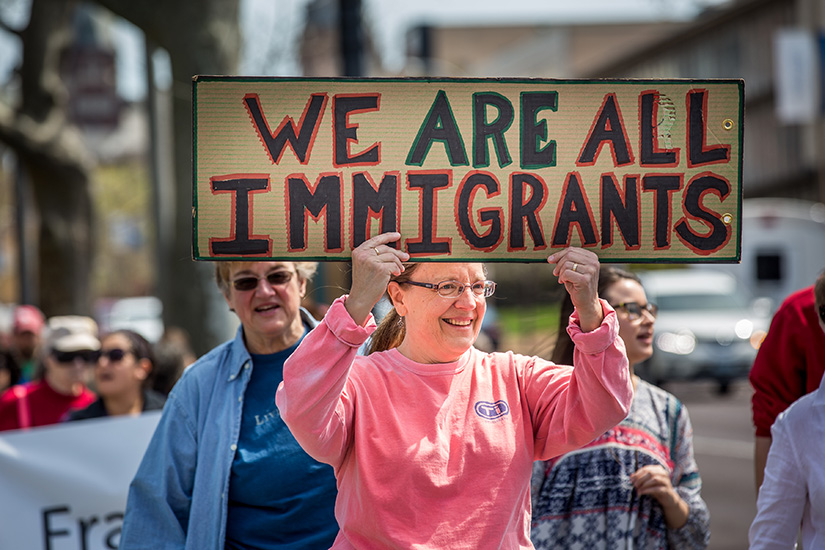
He addressed the separation of immigrant parents and children in a statement in June of 2019, echoing other U.S. bishops in condemning the use of family separation at the U.S.-Mexico border as an implementation of the Trump administration’s zero tolerance policy. Archbishop Carlson cited the need to have secure borders and to ensure that the country remains safe. “But to forcibly separate children from their parent is inhumane, morally unacceptable and ineffective to the goal of deterrence and safety,” he wrote.
He urged people to look at the root causes of the migration, especially those associated with state-sanctioned violence, gang recruitment, poverty and a lack of educational opportunities. Archbishop Carlson also cited the “Christian principle of respect for the inherent dignity of people and the social responsibility to work for the common good.”
He urged people to write to the president, attorney general and members of Congress; pray for the families; and “remain faithful to our Catholic commitment to welcome and serve our immigrant and refugee communities with the best of our resources.”
In 2017, Archbishop Carlson along with the other Catholic bishops of Missouri spoke out on President Trump’s executive order to turn away refugees and to narrow or close entry to migrant people, an effort mostly aimed at people from Syria. They wrote that closing doors to people fleeing hunger, hardships, violence and persecution “does not represent the best of our Catholic and American values and ideals. … Welcoming the stranger, the immigrant, and the refugee have been long-standing hallmarks of our American way of life and religious convictions.”
That same year, the Missouri Catholic Conference, of which Archbishop Carlson served as chairman, issued a statement on the Deferred Action for Childhood Arrivals (DACA) program that allows young adults brought into the United States as children to stay in the country and establish citizenship. The state bishops called for congressional action to create a new program that would allow the young people to remain in the U.S. where they are assets to the communities where they live.
Archbishop Carlson participated in a “Solidarity Walk and Mass With Our Immigrant and Refugee Brothers and Sisters” in early 2017 from Saint Louis University to the Cathedral Basilica of Saint Louis.
Earlier, in a pastoral statement on immigration and mercy, Archbishop Carlson supported the U.S. bishops’ Justice for Immigrants campaign. “I do so knowing that for many, this public advocacy and work brings personal apprehensions and resistance. At the same time, I am grateful to Catholics and people of good will in the archdiocese who are reaching out to our immigrant communities,” he wrote.
In his column in the St. Louis Review in January of 2019, Archbishop Carlson noted his concern about both abortion and the treatment of immigrants and refugees. He wrote that “many people in the nation are concerned — and rightly — for vulnerable people at our nation’s border. I wonder how we can’t see, or refuse to see, how this concern is linked to the question of abortion. The issues are not the same, to be sure. But the principles of Catholic social teaching provide a systematic link between them. We can’t open our national borders to the vulnerable and oppose the construction of a physical wall to keep them out, while simultaneously erecting a legal wall at the border of birth and arguing that those on the other side of that border have no rights.”
He added that “we cannot argue that parents and children should be kept together in the immigration process, while exercising every rhetorical, legal and political strategy to support the separation of parents from children through abortion. The intellectual and moral inconsistency is staggering. It needs to end, in both directions.”
Archbishop Robert J. Carlson has been a frequent and vigorous supporter of immigration reform efforts and for the humane treatment of immigrants and refugees. Archbishop Carlson used his column in … Archbishop Carlson was a frequent, vigorous supporter of immigration reform
Subscribe to Read All St. Louis Review Stories
All readers receive 5 stories to read free per month. After that, readers will need to be logged in.
If you are currently receive the St. Louis Review at your home or office, please send your name and address (and subscriber id if you know it) to subscriptions@stlouisreview.com to get your login information.
If you are not currently a subscriber to the St. Louis Review, please contact subscriptions@stlouisreview.com for information on how to subscribe.

